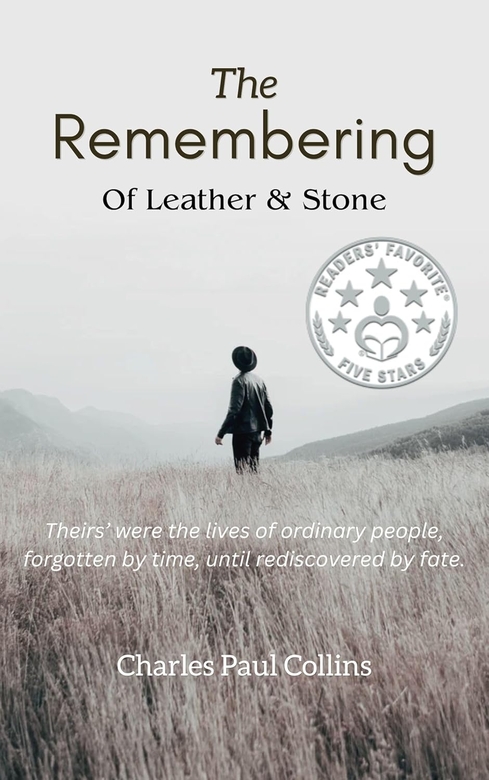
A richly imagined family legacy set against the backdrop of a perpetually changing world, The Remembering: Of Leather and Stone by Charles Paul Collins blends fact and fiction into a compelling American saga.
Remarkable in scope, emotion, and timeliness, this fact-based novel depicts the shifting tides of American society as it moved through the horrors of the Civil War, the violent battles for labor rights across the country, disruptive technological revolutions, and the growing pains of a nation still wrestling with its racial and cultural identities, all through the lens of the author’s own family. Told through fabricated journal entries of the author’s ancestors, this is a generations-long portrait of the immigrant experience, layered with emotional and historical detail.
The story begins with the author’s great-great-grandfather, Cornelius, who survived The Great Hunger in Ireland as a young man before gaining passage to America. Seeing emigration as his only chance for advancement, he flees the famine, survives the deadly conditions of a transatlantic crossing, and finds himself in Boston, where he is rapidly employed as a cobbler before being swept off to Milford. He progresses in his boot-making career, lays the foundation for a family, and mourns the losses of life in the Civil War and the armed rebellions in Ireland back home.
Both a journalistic dive into the monotony of daily life and a personal reflection on purpose, pride, assimilation, and patriotism, this opening section establishes Collins’ unique and intimate storytelling style. The second section is shorter, but no less enthralling, detailing the side-by-side stories of Cornelius’ son Michael and a stonecutter from Italy named Giuseppe as they navigate turn-of-the-century Milford as skilled immigrant tradesmen. However, World War I shatters their illusions and hopes for the future, leaving their children to pick up the pieces – and the entwined family legacy – in the third and final chapter.
Varied in its form, from anecdotal journal entries to extended stretches of narrative, readers get a convincing sense of authenticity about each period, powerfully demonstrating how the average person’s time was dominated by the labors, responsibilities, and indignities of everyday survival. The massive transitions that Cornelius, Michael, and Giuseppe experience offer readers a glimpse into seminal periods of American history, when industries dramatically rose and fell, and families were irrevocably altered by the pains of war, strife, and oppression. Using his own family tree, Collins is able to provide striking insight into key moments of the past, from political developments and national trends to global conflicts and technological breakthroughs whose impacts still echo today.
Thematically, the prose explores many of the fundamental issues that immigrants and laborers still face today – wealth gaps, a disconnect between politics and people, harsh working conditions, and the lingering threat of discrimination, particularly in contentious times. While this multi-person memoir is primarily a work of fiction, it honors and elevates the legacy of “common people” whose resilience and sacrifice paved the way for untold generations that followed. As Cornelius notes near the opening of the book, the fate of many people is forgotten by time, as their names and stories fade beyond memory, and this novel effectively brings these vital stories to enduring life.
Sensitive, creative, and transportive, this is a must-read for avid readers of historical fiction, as well as anyone who wants to implicitly understand the American immigrant experience.
Book Links
STAR RATING
Design
Content
Editing
Get an Editorial Review | Get Amazon Sales & Reviews | Get Edited | Get Beta Readers | Enter the SPR Book Awards | Other Marketing Services























Leave A Comment